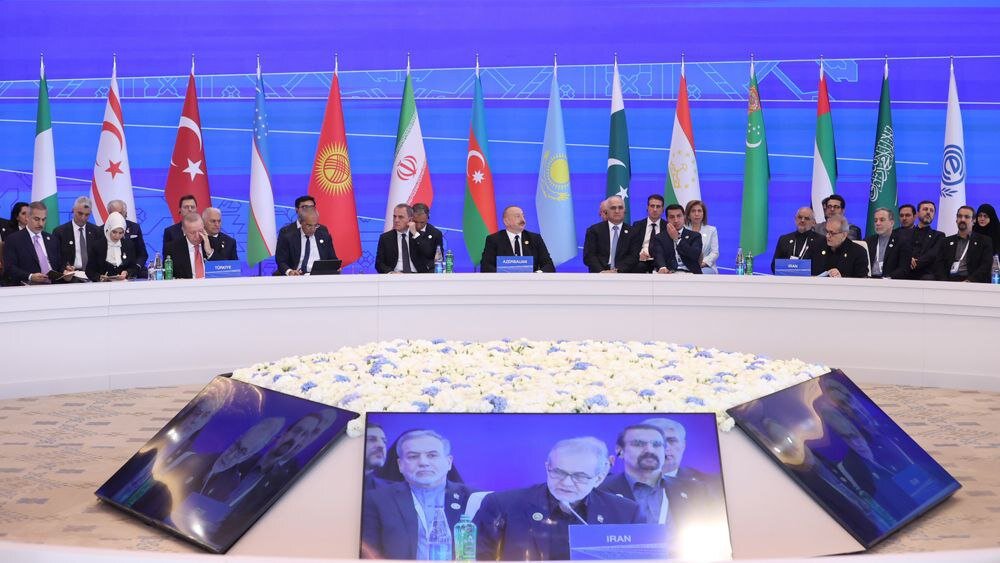Pezeshkian condemns Israeli aggression, emphasizes Iranian sovereignty at ECO summit

TEHRAN- Addressing the 17th Economic Cooperation Organization (ECO) Summit in Khankendi, Azerbaijan, President Masoud Pezeshkian vehemently denounced Israel's recent assault on Iran, adding that the nation's armed forces delivered a powerful and effective response.
He stressed that Iran’s decisive action prevented the escalation of the conflict and safeguarded its own sovereignty.
Pezeshkian strongly condemned the criminal actions perpetrated by Israel, listing a range of targets, including military personnel, academic figures, innocent civilians, safeguarded nuclear facilities, and crucial infrastructure. He noted that these aggressive actions, backed by the U.S., blatantly violated the United Nations Charter, particularly Article 2, paragraph 4, which prohibits using force against any nation’s territorial integrity or political independence.
President Pezeshkian insisted that Iran, acting within its rights under Article 51 of the UN Charter, legitimately defended its land and sovereignty. The President explained that this defense served as a severe lesson to the aggressors and prevented further regional instability.
The Iranian president also applauded the ECO member states and the region for standing in solidarity with Iran and condemning Israel's aggression. He highlighted the essential need for regional unity when faced with outside dangers.
Pezeshkian pointed out that many international and regional organizations, including the Meeting of Foreign Ministers of Islamic Countries, have strongly condemned the attacks by the Zionist regime on Iran. He further emphasized that this ECO summit provided another valuable chance to highlight the recent aggression, and the regional and global risks that stem from it, to the wider international community.
Pezeshkian then shifted the focus to the role of the ECO, highlighting its importance for building regional economic strength and cooperation. He encouraged ECO members to strengthen ties by promoting trade, upgrading transit routes, and embracing new technologies to create a prosperous and secure region.
Acknowledging that progress has been made since the organization's establishment in 1964, Pezeshkian noted the need to address persistent challenges. He urged a strong push to expand intra-regional trade, as the current level of 8 percent falls far short of objectives. He called for the prompt finalization and implementation of the ECO trade agreement and insisted on launching talks to establish a free trade zone by 2035.
President Pezeshkian also underlined the need to modernize and improve the existing trade agreement, arguing that it fails to meet the economic needs of member states for the coming decade.
To boost access for landlocked members to global markets, Pezeshkian stressed the urgent need to improve transport infrastructure, recommending that new trade and transit privileges should be provided to those landlocked states.
Recognizing the increasing significance of technology, President Pezeshkian proposed establishing an ECO regional center for AI, aiming to enhance competitiveness and cooperation. He also promoted further investment in tourism across the ECO region, leveraging the cultural and natural heritage of member countries.
The president concluded by underscoring the importance of resilience in the face of crises like the COVID-19 pandemic, stressing the necessity for both national and regional preparedness. He promoted the ECO as a key instrument for promoting resilience, arguing that the ECO’s 2035 Vision must urgently tackle key issues to guarantee sustainable growth and stability across member states.